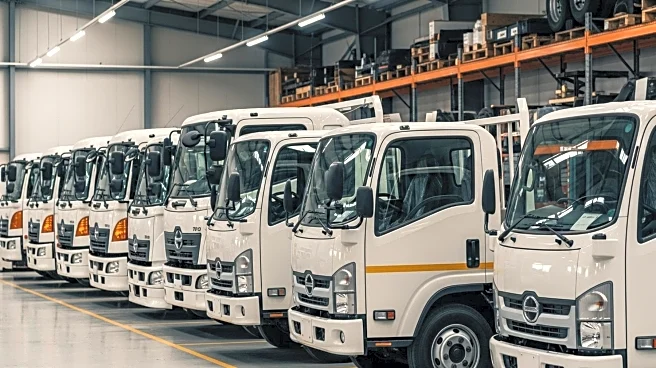What is the story about?
What's Happening?
Fleet managers are increasingly relying on used trucks as new orders for Class 8 and medium-duty trucks have significantly declined, according to a preliminary report from ACT Research. The report indicates a 44% year-over-year decrease in Class 8 orders and a 22% drop in medium-duty Classes 5-7 orders. In response, original equipment manufacturers (OEMs) are scaling back production. To maintain operations, fleets are focusing on maximizing the lifespan and efficiency of their existing assets, which involves implementing proactive, data-driven maintenance strategies. This includes optimizing preventive maintenance schedules and leveraging predictive maintenance tools to prevent costly breakdowns.
Why It's Important?
The shift towards used trucks and enhanced maintenance strategies is crucial for the logistics industry, which faces challenges due to reduced new truck availability. By extending the life of existing vehicles, fleets can continue operations without the need for new purchases, which are currently less accessible. This approach not only helps in managing costs but also ensures the reliability and safety of transportation services. The emphasis on predictive maintenance and telematics can lead to reduced downtime and repair costs, providing a competitive edge in a down market.
What's Next?
Fleet managers are expected to continue refining their maintenance processes, focusing on consistency and flexibility to adapt to the aging fleet. The industry may see increased investment in predictive maintenance technologies and training for technicians to enhance efficiency and safety. As OEMs adjust production levels, fleets will need to balance the use of older trucks with the potential introduction of newer models when market conditions improve.
Beyond the Headlines
The reliance on older trucks raises questions about environmental impacts and regulatory compliance, as older vehicles may not meet current emissions standards. This could lead to increased scrutiny from environmental agencies and necessitate further investment in technologies that reduce emissions.















